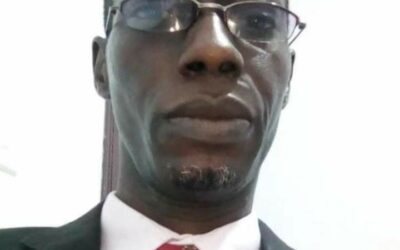By CHINEDU EZE,
The attempt to blow up an American airline by Nigerian-terror suspect, Umar Farouk Abdulmutallab on Christmas day has not only caused considerable embarrassment to the country, it has also compelled the aviation authorities to impose stricter security measures for airports and passengers world-wide.
As such, the Nigerian Civil Aviation Authority, Federal Airports Authority of Nigeria, security agencies and international airlines have been scrambling to comply with the new directive to upgrade the quality of equipment and scanners deployed at Nigerian airports. In the interim, rigorous physical inspection of passengers and their luggage have led to long queues and the lead time before passengers can board their flights. Reports early in the week indicated that passengers were being advised by the airlines to arrive at airports seven hours ahead of their scheduled departure time. CHINEDU EZE was at the Murtala Muhammed International Airport this week to see the measures being put in place as safeguards against terror threats
The new security measures of one hundred per cent screening of passengers introduced at the nation’s airports in the wake of botched bombing of the Delta Airline by Umar Farouk Abdulmutallab on Christmas Day, have put the entire country on the spot. Apart from the fact that Nigeria now has to beef up airports security and screening measures at all her international and domestic airports, the country has suffered the additional indignity of being labelled a country of “special interest” by the US. The US last Sunday imposed stiffer screening and inspection rules for Nigerian and nationals from 13 other countries travelling to the US.
Although security has been beefed at the airports since the attempted terror attack, especially at the four major airports in Lagos, Kano, Abuja and Port Harcourt that service international flight operations, security personnel have carried on with the old system of physical yet rigorous inspection of passengers’ goods and luggage, as well as body pat downs and frisking of passengers. Investigations conducted by THISDAY show that physical inspection of passengers’ luggage has become more rigorous as the screening machines available at the airports comprise metal detectors that have now become outmoded and inadequate with the new terror tactics of using powdery bomb substances and liquid chemicals to blow up aircraft. This has given rise to undue delays occasioned by long queues, which could be minimized with the acquisition of the right machines.
Last week, the federal government listed new security conditions that must be met by passengers at the airports before they would be allowed to board international flights. The director general of the Nigeria Civil Aviation Authority, Dr. Harold Demuren read the new security procedures at the airports and stressed that strict compliance must be demonstrated at all times by the passengers. He further announced that the country would in a matter of days upgrade its security screening system to 3D imaging scanners at all the nation’ airports.
Waiting for 3D Scanners
According to the new security conditions, no person including crew members should be allowed to board an aircraft without passing through all aviation security screening procedures with all the formalities, and 100 per cent examination is mandatory for all passengers. He said that secondary screening of passengers and carry-on luggage should be total and performed for all departing flights at the boarding gates, including body search. “It is mandatory to conduct 100 per cent physical inspection of all passengers’ at the boarding gate prior to boarding,” Demuren emphasized.
He also said that liquids, gel and aerosols should not be allowed on board aircraft without compliance with the requirement of the 100ml limit for liquids and placed in transparent re-sealable plastic bags. “100 per cent screening of checked-in baggage must be performed and positive passenger baggage match (PPBM) should be carried out. Thorough security check on catering, fuel and maintenance vehicles accessing the airside must be conducted,” Dr. Demuren added.
Findings show that so far government is yet to acquire the new full body scanning machines. Instead, the Federal Airports Authority of Nigeria is taking delivery of a batch of 14 metal detectors scanning machines that were ordered months before the Abdulmutallab incident happened. Consequently, government is under pressure to deploy the 3D scanning machines at the airports to reduce the rigor of manual screening of passengers, which in addition to delays has other inherent risks.
Reports last week, however, showed that the country already has four 3D full-body screening machines at the four international airports which the US State Department is said to have donated to the National Drug Law Enforcement Agency. The scanners are expected to be jointly used by both FAAN and the agency. But a FAAN official said that the machines are not kept in public places where passengers go for screening by NDLEA. Rather, the four scanners are kept at designated places where the agency randomly picks passengers to screen them for possible drug trafficking.
Spokesman of NDLEA, Mitchell Ofoyeju, confirmed that the 3D full-body scanners are located in the four airports in Lagos, Abuja, Kano and Port Harcourt. “They are precisely for screening passengers for possible drug trafficking, but if we feel that there is suspicion of a bomb or terror attack, we would quickly contact FAAN. We collaborate; we do profiling for those coming from notorious drug countries. We do random checks of passengers, we do not screen every passenger and we carry out risk assessment of passengers,” Ofoyeju said.
So how quickly will the federal government acquire these 3D full-body scanners? THISDAY learnt that contrary to the optimism expressed by FAAN, so far emergency funds have not been made available to the agency. As such, the agency will still have to follow the slow, bureaucratic process of adding funding for the acquisition of the scanners in the 2010 budget which is about to be passed by the National Assembly so that the money would be earmarked under the Ministry of Aviation’s budget.
But a source from the Senate Committee on Aviation told THISDAY on Thursday that so far there was no indication that a budgetary provision had been made for the scanners. “This is still being expected from the Ministry of Aviation which would make a presentation on appropriation so that funds for the scanners would be captured in the 2010 budget before it is passed. But because of its urgency, the Senate can originate it and raise appropriation for it to be captured in the budget,” the source said.
Also a senior security official in FAAN disclosed that there has been no tender for the acquisition of the machines, although many people claiming to be security experts are bringing brochures on the machines and requesting to receive approval for them to supply them. “Apart from the announcement made by the director general of NCAA that government would acquire the machines, we have not heard anything yet on it,” the official stated.
Physical Inspection
But while waiting for the arrival of these machines, passengers would have to be subjected to alternative forms of screening to ensure that thorough investigation of passengers and luggage is effectively carried out. “With the latest development any form of search and screening is allowed, so the passenger is made to go through any process that would ensure that the job is effectively done, and also to ascertain that there is nothing incriminating on any passenger. The security operatives do it not only in Nigeria but in other countries in the world,” FAAN officials said.
But fears have been expressed that through physical inspection of passengers’ luggage, security operatives at the airports could set a passenger up by planting incriminating things in their luggage as they have complete access to them during the inspection process. According to one passenger, “all it takes is for a passenger to be distracted for a few seconds when his personal effects are being inspected.
When that happens, anything incriminating could be planted in the passenger’s luggage and could put that person in serious trouble.” But with 3D screening machines it is believed that the intrusive access to passengers’ luggage by security operatives would be minimized as the machines would screen the bags more effectively.
However, a source in FAAN dismissed such fears, stating that over the years such incident had never been recorded and with the recent stringent measures no security operative has the latitude to abuse his/her position. “Also in the past, some so-called highly placed individuals were allowed to pass through the checks without screening, but with the new policy such indiscriminate measures have been jettisoned. Everyone, no matter how highly placed will have to be subjected to screening. Recently the NCAA met with the airlines and the airlines were charged to embark on secondary checks on the passengers. Now, there is aggressive screening, no sacred cows. It is only the president and his wife that are exempted from screening at the airports,” the FAAN source insisted.
Additional Security Personnel
With the rigorous screening of passengers it is expected that FAAN which provides aviation security at the airports would need more personnel for this to be effective and efficient. But so far there has been no increase in the number of workers for aviation security, the source said. He disclosed that for those on the beat to effectively carry out the job in a timely manner, there would need to be for more hands. “We have plans for additional manpower, although the ones we have are effectively conducting the screening. Also in accordance with ICAO (International Civil Aviation Organisation) recommendation, we are going to recruit more hands. FAAN conducted interviews for security personnel in 2006, so it is drawing from these candidates and sending them on training, which is mandatory.”
On the delays that have caused so much inconvenience to the passengers, the FAAN official said that the aviation authorities have appealed to the airlines to instruct their passengers to arrive at the airports three hours before departure and not seven hours. “It is passengers who panick that elect to arrive several hours ahead of their flights.”
Industry experts said that when Abdulmutallab passed through Lagos airport to fly to Amsterdam there was no proper profiling of him like his personal data, address, job, next of kin, phone number (which the airline failed to obtain from him) and other details. But now all these have changed. There are stringent measures adopted by aviation security, the Immigration Service, NDLEA and Customs who are involved one way or another in the screening process. “Those required to search the passengers include Aviation Security, NDLEA, Customs and Immigration. This time there is proper profiling, including personal data to know whether a passenger is on a wanted list or not,” a source told THISDAY.
Privacy and Health Concerns
Also the introduction of 3D scanners, have raised concerns about privacy and health issues. But security experts and those conversant with the full body scanners allayed concerns over privacy. The scanning machines, they pointed out, do not store images that can be used elsewhere and that state-of-the-art scanners are even automated, meaning it is a computer that does the inspection and only alerts human operatives if something unusual shows up.
Similarly, aviation expert and former security consultant to FAAN, Adebayo Babatunde, has dismissed fears that the machines would expose passengers to health hazards. Babatunde explained the machines are not life threatening. “Passive millimetre waves don't radiate subjects. Neither do they illuminate or emit energy, and therefore pose no health risks to passengers and even to those with pacemakers and pregnant women.”
He said the system is usually deployed as an open standoff application and will not cause problems for people suffering from claustrophobia. “The Rapiscan Secure 1000DV exceeds the requirements of health authorities worldwide. For example, while the Rapiscan secure 1000DV has less than 10 microRem exposure, the following typical exposure levels can be experienced with other medical scanning and some natural environments (A) medical CT scan – about 1,000,000 microRem; (B) chest, Mammography-about 10,000 microRem.”
Babatunde’s advise to passengers going through the rigorous screening and search process at the airports comprise the following: “Every passenger should first and foremost bear in mind that the essence of the heightened security screening is to secure air travel and by extension protect lives and property of passengers; and that the introduction of this new technology is in their interest. The process might result in minimal inconvenience to passengers but it is better to suffer this and be secure.” He noted that the scanning process minimises pat downs on passengers and the system uses passive-millimetre waves, adding that “operators should maintain their professional calmness and be courteous while maintaining total vigilance"



